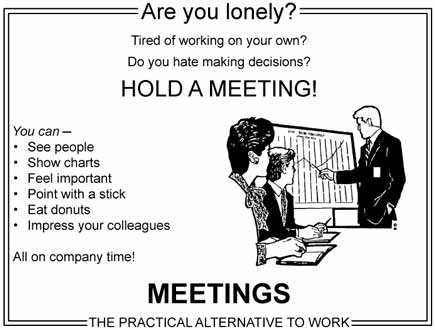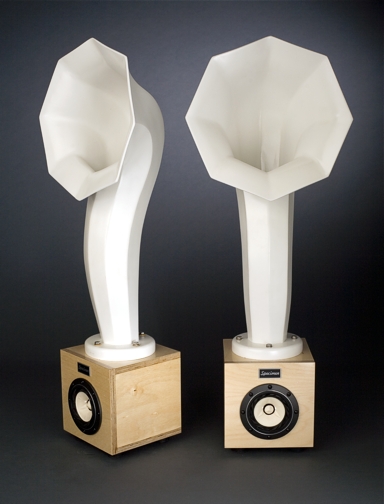Work expands so as to fill the time available for its completion.
Parkinson’s_Law, discussed in this “Beyond The Pedway” profile of 37signals (and also years ago here at SvN: “Don’t break Parkinson’s Law”)
You’re reading Signal v. Noise, a publication about the web by Basecamp since 1999. Happy !
Work expands so as to fill the time available for its completion.

Camouflage Art by Liu Bolin: “Inspired by how some animals can blend into their environment, Liu Bolin from China uses camouflage principles to create amazing contemporary art.” Ya gotta see the rest of these too.
The About Samsonite page throws around important sounding phrases about embodying the brand, leveraging craftsmanship, and creating unique solutions.
By identifying trends and interpreting travelers’ needs, Samsonite continues to infuse innovation and new ideas into travel, re-igniting the sophistication and experience of the past.
Yawn.
It’s a good example of the way big companies wind up talking. Bloated language is what happens when copy gets filtered through a committee.
Compare that to The Saddleback Story, the tale behind bagmaker Saddleback Leather.
It all began when I had my first bag made while living in Southern Mexico as a volunteer English teacher to kids who needed a little help. I had looked everywhere for just the right bag, but with no luck…
In my search, I walked into a little leather shop and met the fellow working leather in the back. I asked him if he could make me a bag if I were to draw it out. I told him that I wanted this bag to be made so well that my grandkids would be fighting over it while I was still warm in the grave. He said “Si” and I said “Bueno” and that’s how it all started.
And it continues from there. Now that’s copy with a pulse. A personal story like that is something a little guy can deliver that a big corp can’t. A tiny company can bring people inside the fold this way and turn a perceived weakness (small size) into a strength.

Are you reading Derek Sivers’ blog? He’s really been killing it with good posts lately. The “hippie capitalist” (he’s a musician who founded CD Baby) is a master at offering simple advice that delivers real impact.
Some recent examples:
His site also offers detailed notes on books he’s read with a focus on titles about business, investing, and psychology. I’ve found those notes are a perfect match for Instapaper, the iPhone app that lets you read web pages even when you’re offline and saves your place on longer pieces. Together they make a terrific subway reading combo.

Meetings: The practical alternative to work. (via Ariel)
So maybe it’s time for you to join the movement. Why not carve out an hour or two a week, tell your colleagues and customers that you have cleared your schedule, that you’ll be sitting in your office, and that you hope to hear what they’re worried about, excited about, or confused about. It’s nothing fancy, nothing all that cutting edge, but it may be your most productive time of the entire week.
The startup world is full of people addicted to work. The addiction often carries a heavy toll of lost friendships, broken relationships, bad health, and a dearth of other interests. All that matters is the next high from work. The next deal, the next milestone, the next round of funding.
If you had a similar addiction to cocaine or alcohol, people would call you sick and ask you to get help. But in the startup world, this addiction is praised by many. You’re a hero for putting in all your chips of life for that off chance that you’ll hit a royal flush.
What’s worse is that most of these addicts know intellectually that plowing through 14 hour work days is not actually a very productive way to get ahead. That more time doesn’t mean more valuable work done. Jason Cohen addresses this in Sacrifice your health for your startup. He recognizes that sleep deprivation is not helpful, but still sees it as a badge of honor. That the extra work is probably not quality product, but somehow still needs to happen.
He talks the talk of reason but walks the walk of an addict. Desperate to find a justification for his ways: You need to be nothing but work because you have to wear many hats. You need to have a single-tracked obsession with work because the nirvana of “financial freedom” is just a few highs away.
Being addicted to your work might be slightly better than a coke habit, but it follows the same pattern of abuse and escapism. And most importantly, it is not a requirement for success. You do not have to become an addict to run a startup. Be passionate, be obsessed, but don’t let it be an excuse for consuming your life.

Specimen Products is a custom instrument and amp company based in Chicago, IL. Everything is handcrafted to create a unique blend of high quality acoustics and innovate design. The Little Horn Speakers pictured above are based on their larger products used by musicians onstage, most notably by Andrew Bird.
So we’re finalizing the layout of Rework with our publisher. We weren’t liking the appearance of the bullet lists in the book though. There were emails back and forth. Then phone calls. They thought we wanted more “flair” or a hand-drawn look to match the illustrations. We said no, we just wanted them to be “clean and consistent.”
But describing designs with words is an imperfect science. The dialogue dragged on for days. We just weren’t understanding each other.
Finally, we decided to show instead of tell. We mocked up quick and dirty versions of the lists in Pages, exported them in a PDF, and sent that over to the publisher. Took just a few minutes yet completely changed the tone of the conversation. It got everyone on the same page, we all agreed, and then we moved on.
Seems like the obvious move in retrospect. But we kept thinking that just one more email would clear up the confusion. It was a reminder of how easy it is to waste time talking around a problem when just getting real with it can get you to consensus in a fraction of the time.
I’ll tell you what I do. I take a one-gallon Ziploc bag, and I put my Kindle in my one-gallon Ziploc bag, and it works beautifully. It’s much better than a physical book, because obviously if you put your physical book in a Ziploc bag you can’t turn the pages. But with Kindle, you can just push the buttons.